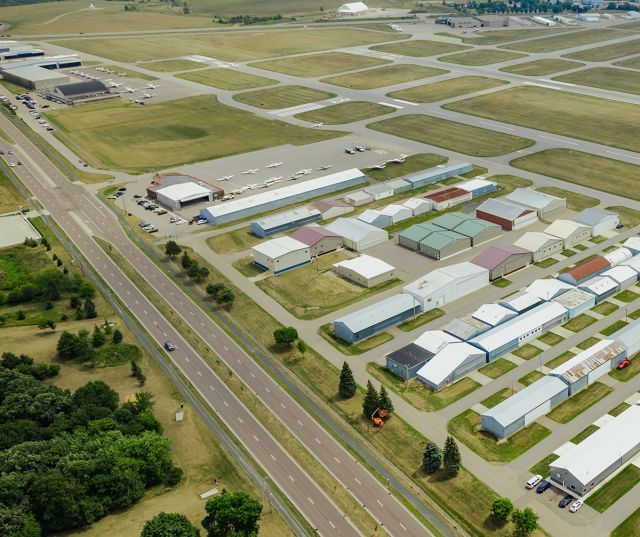MAC approves 2040 long-term plan for Flying Cloud Airport

Plan outlines new air traffic control tower, safety upgrades, hangar development
The Metropolitan Airports Commission (MAC) board this week approved a long-term plan for Eden Prairie’s Flying Cloud Airport (FCM), the busiest general aviation airport in the Twin Cities.
The Flying Cloud Airport 2040 Long-Term Plan provides a high-level framework for future development projects and improvements over the next two decades within the existing airfield space. There are no proposed modifications to runway lengths or locations.
“This plan, first and foremost, sets priorities to enhance the safety and efficiency of our facility that meet the latest federal design standards,” said Bridget Rief, the MAC’s vice president of planning and development. “Further, it explores future project opportunities that can support forecasted growth for both aeronautical and non-aeronautical uses.”
Flying Cloud recorded 132,744 takeoffs and landings in 2024 and is the home base for more than 330 aircraft.
The Flying Cloud long-term plan outlines potential airport projects, each driven by key priorities such as Federal Aviation Administration compliance, safety enhancements, and operational improvements. These initiatives are organized in multiple phases over the next 20 years. Highlights include:
• Emphasizing airfield ground operations by proposing additional taxiways that reduce runway crossings and improve safety and efficiency of taxiing aircraft
• Addressing existing FAA design standards, which includes enhancing runway safety by installing Engineered Materials Arresting System (EMAS) beds on both ends of Runway 10R-28L
• Developing a balanced approach to the 20-year hangar growth potential by including opportunities for both corporate and small aircraft uses
See the full list of proposed projects in the Flying Cloud Airport 2040 Long-Term Plan.
“The long-term plan will give us a foundation for strategic improvements that benefits users and balances the needs of surrounding communities,” said Joe Harris, MAC vice president of management and operations. “It strengthens our commitment to enhance our facilities and services to support business aviation, flight training, recreational flying and other services that drive economic activity in the region.”
The MAC conducted extensive stakeholder coordination throughout the development of this plan, including engagement with airport tenants, the FAA, the City of Eden Prairie and community residents through a series of public workshops.
While the plan outlines potential airport projects, it does not authorize construction. The MAC will follow any required environmental review processes and vote on separate budget actions to formally approve specific projects identified in the plan before starting construction.